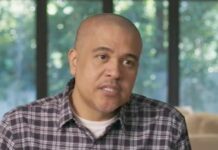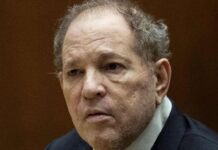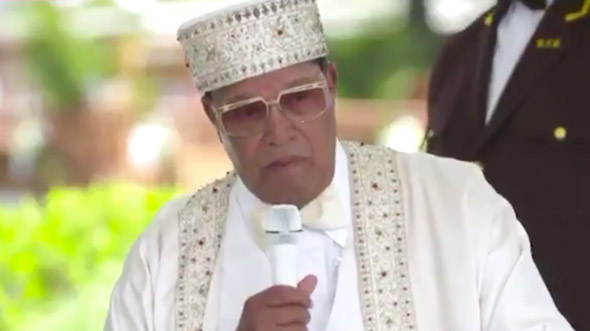
*“Is this black history month? Why did they give you a month? Isn’t it true that they gave you a month to study up on your history, and every day of the year, you are reading theirs? How can you be justified in studying your history for one month, when time doesn’t even show when you began on the planet? How can you be justified in reading white folks’ history, unread? And what you studied for this week is really not your history. You are studying the accomplishment of a slave, who made it under the oppression of his master. While he wears the name of his master. So he’s not yet really making any history. This is his accomplishment in the history of white people. You agree?”
Do these sound like the words of a white supremacist? They are the words of Louis Farrakhan spoken at the Inaugural Saviors Day in Chicago, Illinois on February 22, 1981. These words represent a contribution to the demoralization of black America. These next comments from a speech on June 16, 1996, in Kingston, Jamaica.
RELATED NEWS ON EURWEB: A&E Announces ‘Origins of Hip Hop’ Series with Nas Tapped as Host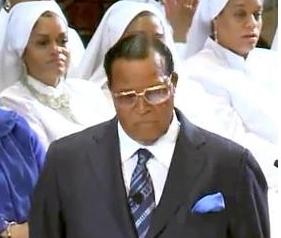 “You see when they brought us out of Africa, the West Indies was the first stop on the way to the new land called America. This place (the Caribbean) was where they broke slaves. The most broken of the broke was sent to America. But more tough slaves remained in the Caribbean. You are a very great people brothers and sisters.”
“You see when they brought us out of Africa, the West Indies was the first stop on the way to the new land called America. This place (the Caribbean) was where they broke slaves. The most broken of the broke was sent to America. But more tough slaves remained in the Caribbean. You are a very great people brothers and sisters.”
Why is all this important? We are now at a point where a large percentage of African Americans feel inferior to Caribbean and African blacks. While I am not saying that these nefarious remarks represent the sole reason for this inferiority complex, they represent a great contribution. Great in the colloquial sense.
When rappers such as Pete Rock and Busta Rhymes (both of whom have Caribbean roots) claim that Hip culture comes from Jamaica, this is emblematic of a much deeper problem.
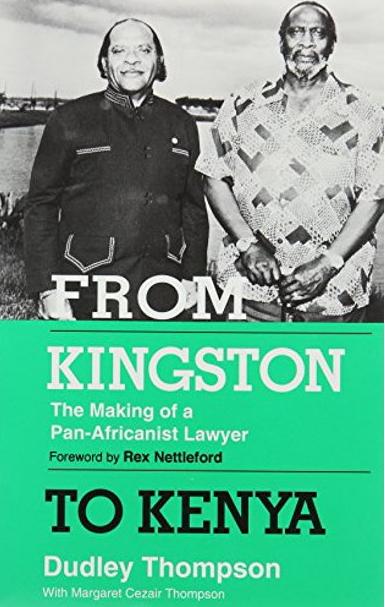 If you go back in time, you see a man by the name of Dudley Thompson. He was originally from Panama and grew up in Jamaica. In his book, “From Kingston To Kenya: The Making of A Pan Africanist Lawyer,” he talks about his exposure:
If you go back in time, you see a man by the name of Dudley Thompson. He was originally from Panama and grew up in Jamaica. In his book, “From Kingston To Kenya: The Making of A Pan Africanist Lawyer,” he talks about his exposure:
“As a child, I had read my father’s magazines, especially The Crisis, a black magazine published by the famous American scholar, W.E.B. DuBois. It published articles on prominent Black Americans who had succeeded in various fields. In its pages, I first became acquainted with names like Booker T. Washington, Dr. George Washington Carver, Madam Walker, and others. People like these, later to be joined by the likes of Paul Robeson, Norman Manley, J.A.G. Smith, Joe Louis, and Claude McKay, became my heroes.”
This was during the 1930s. Dudley Thompson would become a prominent lawyer and represent Jomo Kenyatta, accused and falsely imprisoned for being a leader of the Mau Mau peasant uprising against colonialism in Kenya during the 1950s.
It should be noted that while Jesse Owens and Joe Louis were heroes to black in the United States, they were also viewed as heroes by blacks in the diaspora. In 1948, 50,000 Jamaicans went to see Paul Robeson speak and sing at Race Course (National Heroes Park). According to Paul Robeson, “These people saw in me not a singer, or not just a singer. They called to me: ‘Hello, Paul. We know you have been fighting for us’.
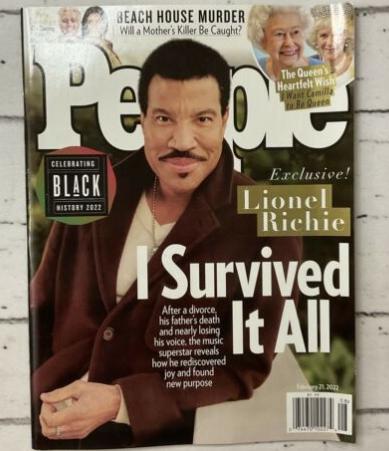 In the February 21, 2022 issue of People Magazine, entertainer Lionel Richie talks about a conversation with an elderly man on a beach in Jamaica. According to Mr. Richie, the gentleman said, “You must survive because you are a beacon of hope. If you make it, we know we can accomplish.” This was in the 1990s. This Jamaican elder was clearly from a time period when/where the role of black people in America was understood and saluted.
In the February 21, 2022 issue of People Magazine, entertainer Lionel Richie talks about a conversation with an elderly man on a beach in Jamaica. According to Mr. Richie, the gentleman said, “You must survive because you are a beacon of hope. If you make it, we know we can accomplish.” This was in the 1990s. This Jamaican elder was clearly from a time period when/where the role of black people in America was understood and saluted.
This notion that the “broken slaves” were brought to America is insulting and false. First of all, not all slave ships stopped in the Caribbean. Secondly, it makes no sense to have broken people to enslave. To say that more “tough” slaves remained in the Caribbean is fallacious. This type of rhetoric furthers the divide between blacks in the diaspora. Therefore, these types of remarks are clearly pernicious!
The scholarship of Dr. John Henrik Clarke, Herbert Aptheker,[1] and Lerone Bennett, Jr[2] would debunk such foolish talk.
In 2013, a black professor from a university in Georgia spoke in Los Angeles at a black-owned bookstore; he expressed displeasure at the fact that his Caribbean students would use the history of the Maroons in the Caribbean against the African American students. The Caribbean students were suggesting that the enslaved in the Caribbean fought for their freedom, as opposed to the enslaved in America. Unfortunately, the African American students did not push back. The fact of the matter is that Maroons existed in the American south. Herbert Aptheker laid that out in his scholarship in 1943. The ugly and unfounded remarks of Louis Farrakhan and others (“conscious community”) have contributed to the demoralization of the black community!
This type of rhetoric exposes a Caribbean chauvinism that is antithetical to black unity that Louis Farrakhan and others of his ilk purport to be about. As the saying down south goes, “When you open your mouth, you put your brain on display.”
When Pete Rock & Busta Rhymes speak, they are exhibiting that type of chauvinism. Make no mistake, they know better. They are intentionally distorting the historical narrative. When you examine it closer, people like them have a very dim view of Afro Americana culture. In fact, Busta Rhymes even said that America does not have a culture. It should be noted that Rapper Christopher Wallace aka Biggie Smalls did not engage in Caribbean chauvinism. He was New York-born and raised with Caribbean roots and always asking “Where Brooklyn at?”
The truth of the matter is, the older generation (those born in the 1930s and 1940s) allowed this narrative to go unchecked. In many ways, the older African Americans represent the elephant in the room. When American ballet dancer Arthur Mitchell, is on record saying that “the Trinidadian has an identity, unlike the African American,” he should have known better. It was disappointing to hear this.
This thing with Hip Hop is critical to understand. That DJ Kool Herc is from Jamaica is irrelevant. The music that he was playing at parties in the Bronx did not reflect Jamaican culture. He was playing music out of the culture of Black America. In fact, there was nothing in Hip Hop back in the 1970s that reflected any part of Caribbean culture. DJ Kool Herc was mimicking Disco King Mario as a DJ.
Those who either are from the Caribbean or are American with Caribbean roots are playing the role of Imperialists! An Imperialist is essentially a usurper (a person who takes a position of power or importance illegally or by force).
This writer has this to say, I am highly disturbed by this narrative that is filled with deliberate falsehood. To Pete Rock and Busta Rhymes, I want you to hear me well: we see you. It is clear what type of dinner table conversations took place in your homes during your youth. Jamaicans such as Count Matchuki (an early sound system DJ in Jamaica who added talkovers to the songs he played (American R&B), emulating the jive talk of American radio DJs. Mr. Clement “Coxsone” Dodd (Sound System/Studio One Record Producer), King Stitt & U Roy (Sound System DJs) are on record saying their influence is from the United States.
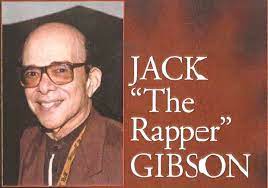 New York is where Jocko Henderson, Dr.Jive, and Jack “The Rapper” Gibson reigned on the radio in the 1950s. During the 1970s, you had the early Hip Hop crew representing the Bronx. Either Pete Rock and Busta Rhymes have spoken to Busy Bee, Jazzy Jay, DJ Sinbad, and Cholly Rock and they are sitting on this information, or Pete Rock and Busta Rhymes are avoiding these folks connected to this history. Either way, it is dishonesty. Sasa & Trixie (original break dancers from 1973-1977) and Queen Anita Hardy are more people to keep that history 100%.
New York is where Jocko Henderson, Dr.Jive, and Jack “The Rapper” Gibson reigned on the radio in the 1950s. During the 1970s, you had the early Hip Hop crew representing the Bronx. Either Pete Rock and Busta Rhymes have spoken to Busy Bee, Jazzy Jay, DJ Sinbad, and Cholly Rock and they are sitting on this information, or Pete Rock and Busta Rhymes are avoiding these folks connected to this history. Either way, it is dishonesty. Sasa & Trixie (original break dancers from 1973-1977) and Queen Anita Hardy are more people to keep that history 100%.
Black America! This is proof that you have not engaged in good stewardship. By that, I mean that you have not preserved our history and heritage that reflect the words of Langston Hughes’ “I Too Am America,” as well as the lyrical content from Stevie Wonder’s song, “Black Man.” I would be remiss if I did not include the lyrical content from Curtis Mayfield & The Impressions’ 1968 song, “This Is My Country.”
Black America. Had that been done, the words of Louis Farrakhan and others of that ilk would have made you remonstrate! It is during this hour, that we have the scholarship of Nikole Hannah Jones (1619 Project) as well as a young generation of African Americans giving push back to this insulting narrative that is out there. Trust and believe, if any of our luminaries had been from the Caribbean or American born with Caribbean roots, “slave names” would be a nonissue. Let us be clear, the Caribbean roots would have been weaponized against born & raised black with roots in America.
To those foreign and domestic blacks who have a dim view of Afro-American culture, we are putting you on notice. It is high time to cease and desist. This Writer is saying bluntly, to stand down. In the words of the O’Jays, ”Don’t Call Me Brother”. Lastly, this is the hour when we need to hear from DJ Kool Herc.
[1] For example, when people think about “the Maroons,” they typically think of places like Jamaica, Haiti, or Brazil.
In fact, Herbert Aptheker, Author of “To Be Free” in 1943, writes about them in the American South.
[2] Reading Lerone Bennett’s work “Before the Mayflower” in high school, launched Nikole Hannah Jones’ journey on the 1619 project.
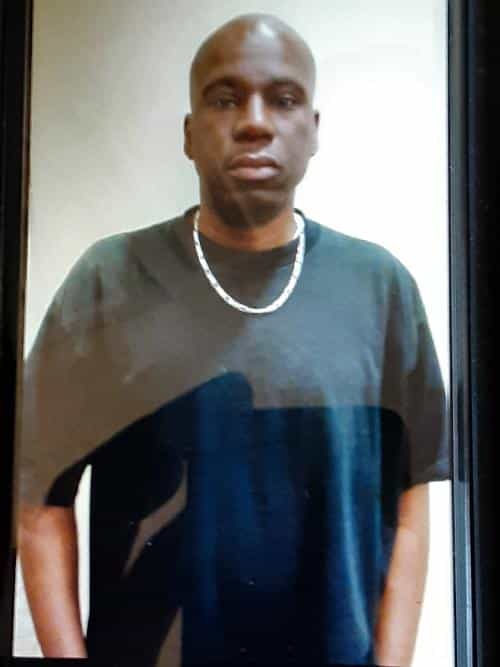
My name is Linden Beckford Jr. I am a freelance writer based in Southern California. I am involved with Southwest Oral History (SOHA). I have participated in SOHA conferences in California, and I have focused on and written about the southern migration to California post World War II.
I have written articles about Abbey Lincoln (Jazz Singer), Rev. Jesse Jackson (Civil Rights Activist), Joe Tex (Soul Singer), and Sidney Poitier (Actor/Activist). I have also written about the Miss Black America Pageant and an Alpha Kappa Alpha Sorority documentary called: Twenty Pearls. It has been my mission to correct misinformation regarding the history of African Americans in this country, for I have a deep concern about Afro Americana culture being under attack and disrespected. I attended Grambling State University in Grambling, Louisiana where I was a History Major.
I have been invited to speak at Cal Polytechnic University, Pomona and Dorsey High School in Los Angeles, California. I have also spoken and participated in an Education Conference at the Black Business Expo and The Black Writers Conference. For inquiries, I can be contacted at [email protected]
We Publish News 24/7. Don’t Miss A Story. Click HERE to SUBSCRIBE to Our Newsletter Now!

